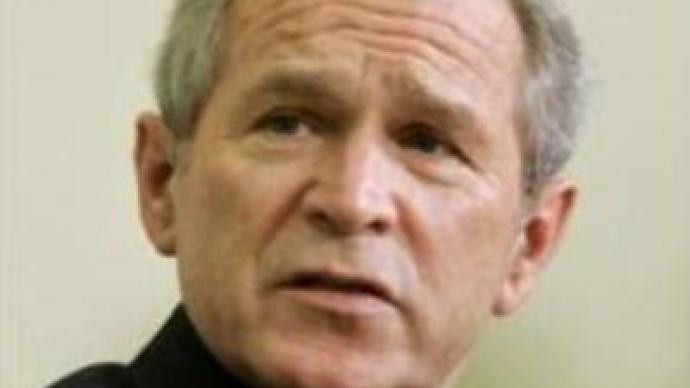US President defends his strategy in Iraq

The U.S. president George Bush has made it clear he'll stand by his new strategy in Iraq, which involves sending almost 22,000 extra troops to the country. He made the statement at his first press conference of 2007 in Washington.
At this conference, Mr Bush said the people of Iraq want peace, and they need the help of Washington to achieve it.Meanwhile, Mr Bush’s new strategy in Iraq has faced the first direct challenge by the American lawmakers.The U.S. House of Representatives began a 3-day debate on a resolution opposing the President's plan to send more American troops to the country.With support from both sides of the house, it is expected to be passed, and then go to the Senate in 2 weeks. “The war in Iraq will enter its fifth year, causing thousands of deaths, tens of thousands of casualties, causing hundreds of billions of dollars and damaging the standing of the United States in the international community and there is no end in sight,” said Nancy Pelosi, the speaker of the U.S. House of Representatives and Democrat.Democrats wrote a simple, tightly worded, resolution that says “Congress disapproves” of President Bush's decision to send additional forces to Iraq, in hopes of winning as many Republican votes as possible.Nonetheless, some Republican House members continue to stand behind the President, warning that the resolution may demoralize the troops and embolden the enemy.At his conference, the American President mentioned all the details concerning this resolution.“The House of Representatives voted on the resolution that opposes our new plan in Iraq before [it] has a chance to work. People are prejudging the outcome of this. They have every right to express their opinion, and it is a non-binding resolution. Soon, Congress is going to vote on a piece of legislation that is binding – a bill providing emergency funding for our troops. Our troops are counting on their leaders in Washington D.C. to provide them with what the support they need to do their mission. All of us here in Washington have the responsibility to make sure that our men and women in uniform have the resources and the flexibility they need to prevail,” stressed the U.S. President.Defending his policy in Iraq, Mr Bush said that stepping away from Baghdad would result in disastrous consequences; in his view, the Iraqi government could collapse, thus creating a vacuum which would be filled by militants and terrorists.Meanwhile, according to a new Gallup poll, 51% of Americans backs a congressional non-binding resolution on Iraq, and 63% of Americans want a timetable to withdraw all the U.S. troops out of Iraq by 2008.In addition, it is highly expected that several dozen Republican Congressmen will defect and vote alongside the Democrats for the proposed House resolution. The vote should take place on Friday.Moreover, President Bush is also reported to have talked about North Korea's nuclear programme, which the international community's attention was paid to, after the deal reached at the talks on Tuesday. The deal was aimed at ending Pyongyang’s nuclear programme.Talking about the U.S.-Russian relationships, President Bush stressed that in spite of having some problems, the two countries have common interests which could provide their relationships with common ground to solve all the problems.“Firstly, we have common interests and we work together on these common interests. We can accomplish important things for the security of our own people as well as for the security of the world. And, secondly, the USA and Russia work very closely on proliferation concerns – we both are concerned about the proliferation of technologies that could end up hurting our people and other people of the world. So, it is a complicated relationship [between the USA and Russia]; it is a relationship in which there are disagreements, but there is also a relationship in which we can find common ground to solve problems,” said Mr Bush.
You can share this story on social media:












